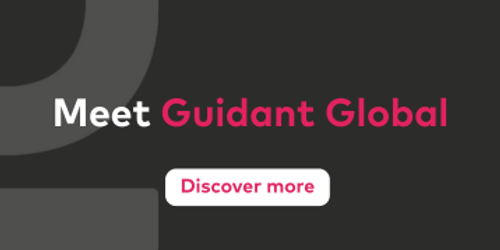

Author
Client Solutions Director
5 minutes
From AI to E-Sports: 10 emerging careers driving skills gaps
The job market is in a constant state of evolution, driven by technology, social trends, and new business needs. A decade ago, many of today’s most sought-after careers were either rare or didn’t exist at all.
Here are some of the emerging job roles that barely existed a decade ago but are now in demand.
1. Artificial Intelligence (AI) Ethicist
As AI becomes more integrated into everyday life, companies are hiring AI ethicists, who are responsible for ensuring that their algorithms and products are fair, unbiased, and used responsibly.
These professionals help shape guidelines and policies to navigate complex ethical issues that didn’t exist before the AI boom. With AI rolling out across so many areas, many organisations are thinking outside the box when it comes to obtaining this talent by upskilling and redeploying, or using a Recruit, Train, Deploy model.
2. Cloud Computing Specialist
While cloud computing existed in some form as early as the 1960s, the explosion of cloud services over the last decade has created a massive demand for specialists who can design, manage, and secure cloud infrastructure.
With 96% of enterprises now using some form of cloud service, roles like Cloud Solutions Architect and Cloud Security Engineer are now essential for businesses further migrating to the cloud.
3. Drone Operator/Pilot
A decade ago, operating drones was mostly a hobby or limited to specialised industries. Today, professional drone operators and pilots are in high demand across sectors like filmmaking, agriculture, defence, construction, energy, logistics, and emergency services.
These specialists use drones for aerial photography, land surveying, crop management and monitoring, infrastructure inspection, and even package delivery, making this a dynamic and rapidly growing career field.
4. App Developer for wearable technology
The rise of smartwatches and fitness trackers has led to a surge in demand for developers who can create applications specifically for wearable devices - a niche that barely existed a decade ago. This is likely to grow, with wearable technology devices now set to be used for health purposes such as controlling diabetes and for stroke rehabilitation.
5. Data Privacy Officer
The EU's General Data Protection Regulation (GDPR) became effective in 2018, bringing with it an increased need for compliance and a growing awareness of data privacy. Organisations are hiring Data Privacy Officers to ensure compliance and protect user data, and this role has become critical for reputation as well as security.
6. Remote Work Facilitator
The pandemic accelerated remote work, with more than a quarter (28%) of working adults in the UK hybrid working between January and March 2025. But even before that, companies began hiring professionals to design, implement, and manage remote work policies and tools.
Offering remote or hybrid work conditions opens up new pools of talent in times of skills shortages as well as reducing office-based costs, making this a new and vital position in today’s flexible work environment.
7. Sustainability/Green Energy Specialists
As climate change and environmental responsibility have gained prominence, new roles focused on sustainability strategies, renewable energy solutions, and environmental compliance have rapidly emerged across industries.
Just one example is the growth in solar power - nearly 100,000 domestic solar panel systems were installed in the UK from January to June in 2025, hitting the highest level in a decade – technicians, analysts, and customer service teams will be needed to manage the installation and maintenance of these systems. Equally, there are currently over 11,000 wind turbines in the UK both offshore and on farms – all of which will need maintenance and monitoring. As ’green energy’ grows and develops and Net Zero targets get closer, the need for these skills will escalate.
8. E-Sports Events Managers and workers
The e-sports industry has skyrocketed, with professional teams with big profiles and leagues growing. E-sports have coaches and managers, who help train players and run teams, but there are also massive events being run that need large numbers of workers.
Just one global esports event held in the UK can generate the equivalent of 238 full-time jobs, with roles ranging from game developers and analysts to specialist knowledge content creators.
9. Cybersecurity Specialists
Just over four in ten businesses and three in ten charities reported having experienced a cyber security breach or attack in the last 12 months. The explosion of online services and the increasing sophistication of cyber threats have created a significant demand for cybersecurity specialists.
Cybersecurity specialists protect digital assets by developing and implementing security protocols, monitoring for breaches, and responding to incidents. While cybersecurity has existed in some form since the formation of the internet, the scope and specialisation of roles such as Security Analyst, Penetration Tester, and Incident Response Manager have expanded significantly over the past decade.
10. User Experience (UX) Researcher for voice interfaces
With the evolution of voice-activated assistants like Alexa and Google Assistant, companies now employ UX researchers to specifically improve voice interface experiences - a field that’s grown alongside advancements in natural language processing.
UX Researchers ensure that voice-activated technologies are intuitive, accessible, and meet the real needs of users, leading to better, more seamless interactions with devices. As voice interfaces and AI platforms continue to work together, this is set to be an area of growth and demand.
How can businesses prepare for job roles that don’t exist yet?
These emerging roles highlight how quickly the job landscape adapts to technological advancements and societal needs. But how can businesses prepare for job roles that don’t exist yet, and avoid skills gaps in the future?
-
Encourage a culture of continuous learning and upskilling so employees can adapt to new technologies and roles.
-
Invest in flexible training programmes that focus on transferable skills, such as problem-solving, digital literacy, and collaboration.
-
Use services procurement or SoW to quickly access specialised skills and expertise on demand, enabling businesses to fill immediate gaps and adapt to changing requirements without the long-term commitment of traditional hiring.
-
Monitor industry trends and emerging technologies to anticipate future talent needs and create a workforce plan before needs become urgent.
-
Nurture internal mobility by redeploying existing staff into new roles as business needs change.
-
Promote innovation and experimentation, enabling teams to explore new ideas that could lead to future roles.
Ready to future-proof your workforce and prevent skills gaps in areas you didn’t even know existed yet?
Contact Guidant Global today to discover how innovative solutions can help you adapt, thrive, and stay ahead in a rapidly changing job market.
Insights to drive workforce performance
Workforce insights in your inbox
Sign up for our newsletter with the latest workforce management news, insights, analysis and more.
Australia
Suite 1403, Level 14
309 Kent Street
Sydney
NSW 2000
United Kingdom
United States
27777 Franklin Road
Suite 600
Southfield
Michigan 48034









